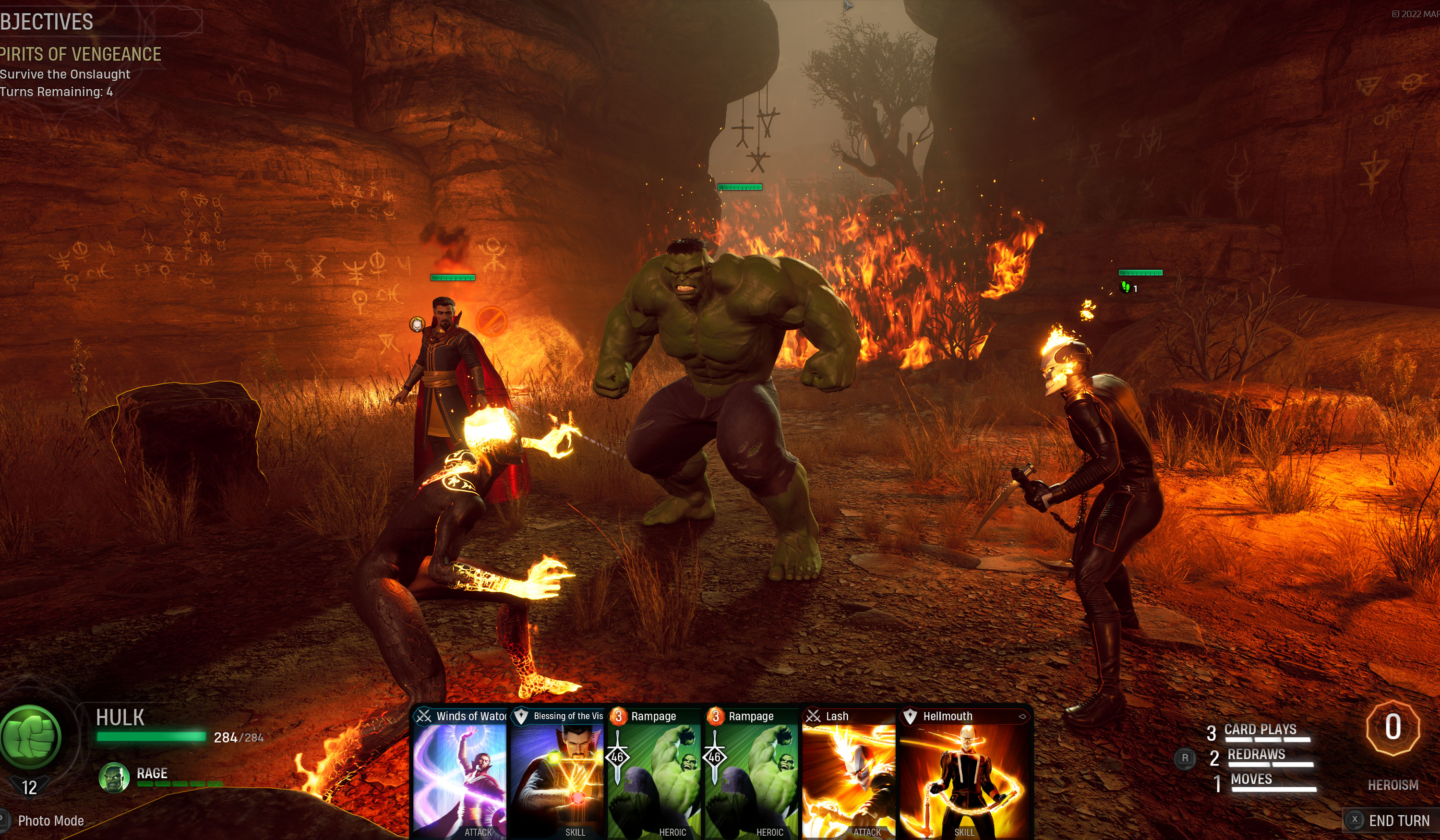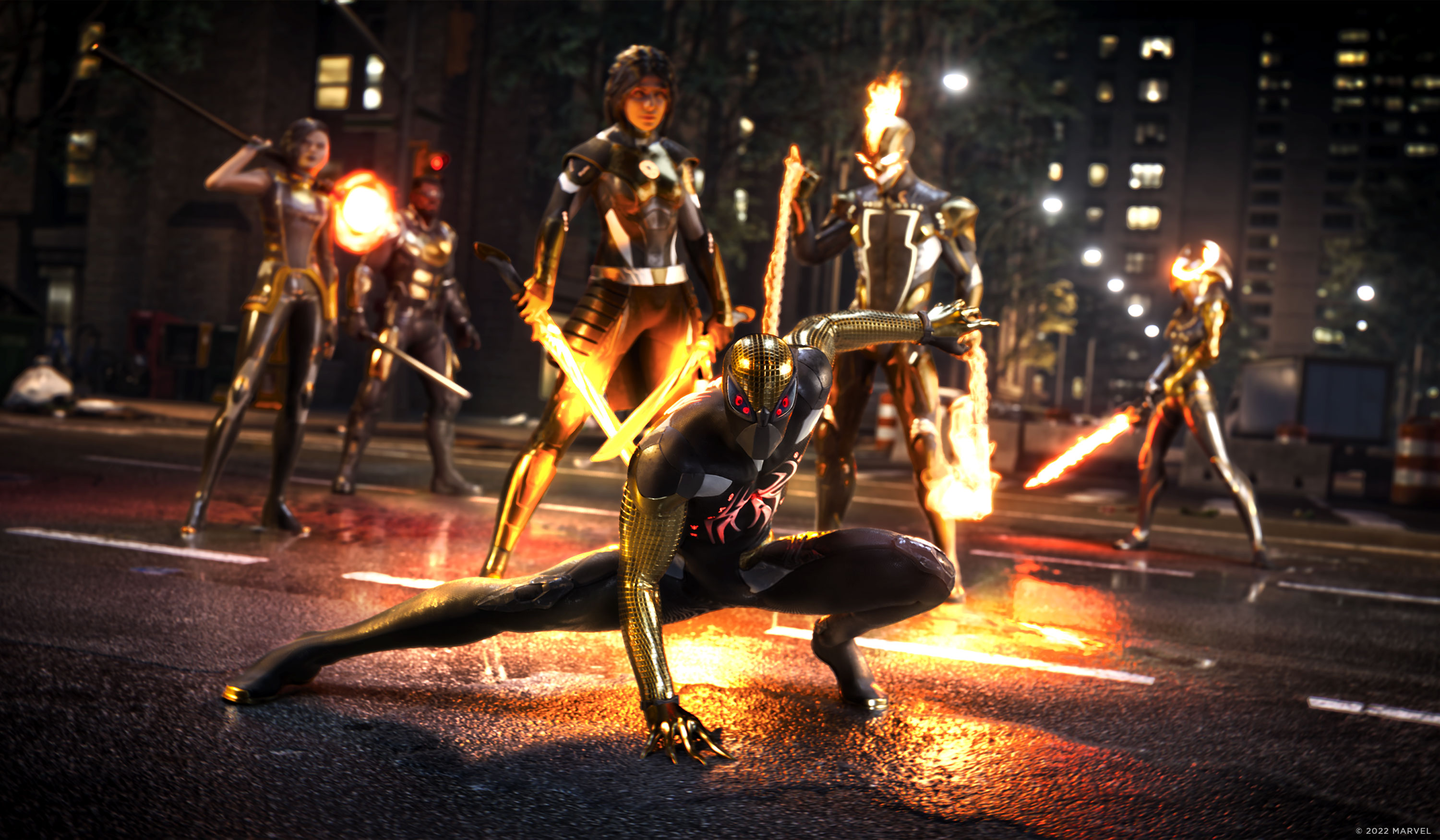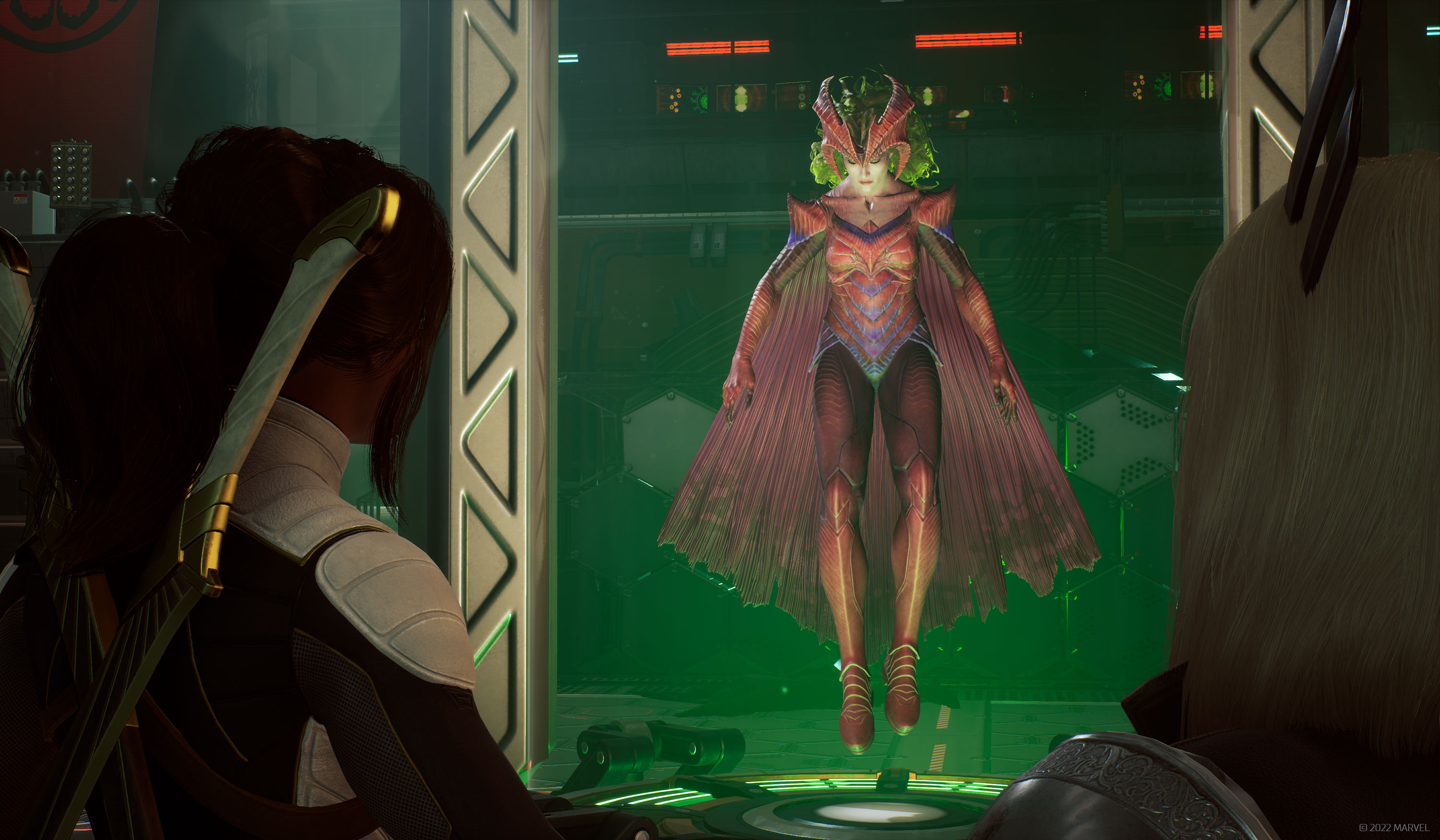Marvel’s Midnight Suns is a truly bizarre game. I don’t mean that negatively, but more as a general descriptor. It’s a mashup of a card-based tactics game and a social simulator with a Marvel comics dressing. While I’m a Marvel fan, I wasn’t entirely convinced that Midnight Suns would be for me because of those card-based elements, but after spending more than 25 hours with it and still being nowhere close to its final act, I can safely say that the game took me by surprise with how well that card system works.
The other side of the game is more of a mixed bag. I like social simulators quite a bit, but the writing in Midnight Suns varies vastly in quality Around two-thirds of my time with the game was split between the rocky social simulation aspects and exploring the uninteresting hub world.
Midnight Suns doesn’t exactly start with its best foot forward. You’re introduced to what feels like hundreds of discrete mechanics over the course of its opening hours, all without allowing you to practice at your own pace. Learning the ins and outs of deck building, daily training sessions, item crafting, friendship levels, boss encounters, and gift-giving, just to name a small sample of mechanics, can be overwhelming. If you can make it through the tutorials, gaining free reign over the Abbey, the game’s home base, and start to learn the mechanics in practice, everything starts to make a lot more sense.
In short: just about everything you do outside of combat is in service of powering up your roster of heroes for the next mission. Some activities directly strengthen specific heroes’ stats while others result in new cards to add to their ability decks. There’s a real sense of purpose engaging with most of Midnight Suns‘ mechanics when not in combat; it’s just a shame that to engage with them, you need to listen to the dialogue.
You could never say that Midnight Suns wasn’t well-researched by its writers. The pantheon of Marvel lore that’s shown off in conversation is truly astounding, but none of it feels natural. Characters rattle off reference after reference to their history with villains and other heroes crowbarred into passing conversation that it makes most of them nearly impossible to relate to. There are small character stories that I found compelling, like the surprise birthday party and ensuing fallout with Magik, but more often than not, I found myself skipping over a lot of dialogue so that I could get back to the tactics section of the game.
The tactical combat is on a whole different level than the social simulation bits. It’s polished, tight, and engaging, making you spend several minutes at a time considering your next moves. As mentioned above, I was initially put off by the deck-building elements, but as I discovered, while Midnight Suns certainly leans into its card-based combat mechanics, calling it a deck-builder would be incorrect.

Each character has a premade deck of eight ability cards to use in combat that grows at a glacial pace over the course of the game. This means that you have plenty of time to understand each character’s deck before making too many choices about how to best customize it. In terms of how that’s actually applied, you’re given a select number of random cards from the characters you’ve chosen for each mission at the start of every turn. When it’s your turn, you get to play three cards, but there are plenty of ways to increase the number of cards you can play in a turn.
At its best, Midnight Suns‘ tactics makes you feel like you’ve outsmarted the game itself as you dunk on enemy after enemy in a single turn. The game does a great job of showing a new side of what the superhero power fantasy in gaming can be thanks to the way it approaches that idea from a new genre. In addition to the tight overall mechanics of the tactics, there’s a good deal of variety to the mission objectives and encounters, meaning that you never quite know what you’re going to get when you suit up to chase after a new threat.
Because the dialog writing isn’t great, the overarching story of Midnight Suns really isn’t much to get excited about. You play as the Hunter, a character made exclusively for the game, who’s been brought back to life after being dead for over 300 years to stop their mother, the evil sorceress Lilith, from brainwashing different Marvel heroes and villains into doing her bidding. It’s a pretty cookie-cutter narrative that leans more into the magical elements of the Marvel universe, but it’s serviceable enough and is a decent backdrop for the combat to be set to. Because Lilith is brainwashing different Marvel characters it means you never know who’s going to show up as a boss when you start a mission.
Marvel’s Midnight Suns Review — The Bottom Line
Pros
- Excellent tactics combat and encounters.
- Easy to understand, light deck-building elements.
- Cohesive mechanics that work well together despite being from entirely different genres.
- Some solid character moments.
Cons
- Overall poor writing.
- Visually unappealing character models.
- Poor time balance.
It’s safe to say Marvel fans who are the slightest bit interested in Midnight Suns should check it out. The writing doesn’t work for me more often than not, but if you’re just looking to spend some time hanging out with Captain Marvel or Blade while you start a book club or go fishing, then you’ll be delighted to find out just how much of that sort of thing is packed into the game.
If you need more than that, then the combat will surely be enough to hold your attention as long as you’re okay with skipping a lot of dialogue.
Midnight Suns is a salad with nice dressing and some juicy steak over cheap iceberg lettuce: I’m not here for the lettuce, but I’ll certainly eat it as long as it means I get the steak. It’s one of the best tactics games of the last five years.
[Note: 2K provided the copy of Marvel’s Midnight Suns used for this review.]








Published: Dec 13, 2022 12:44 pm